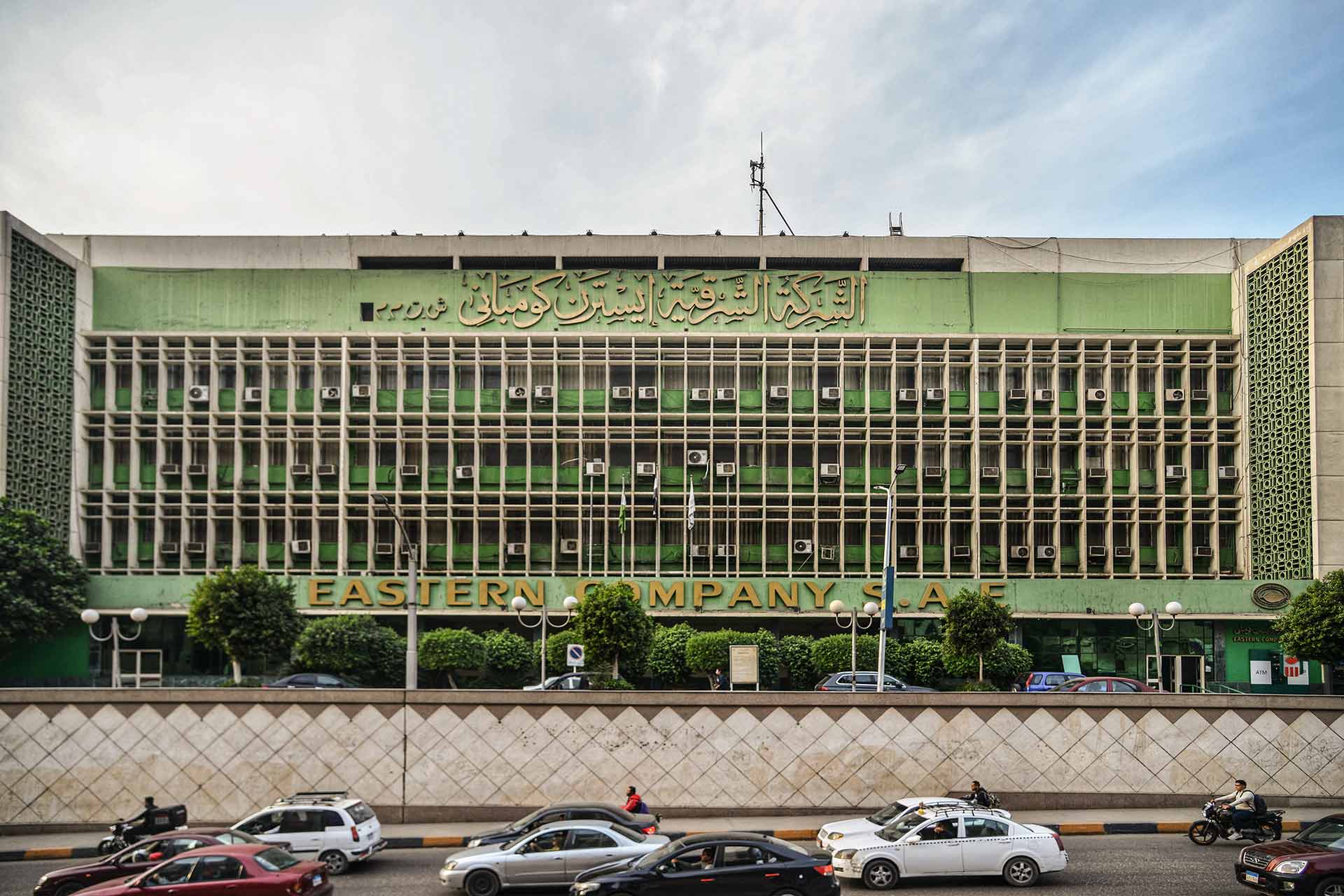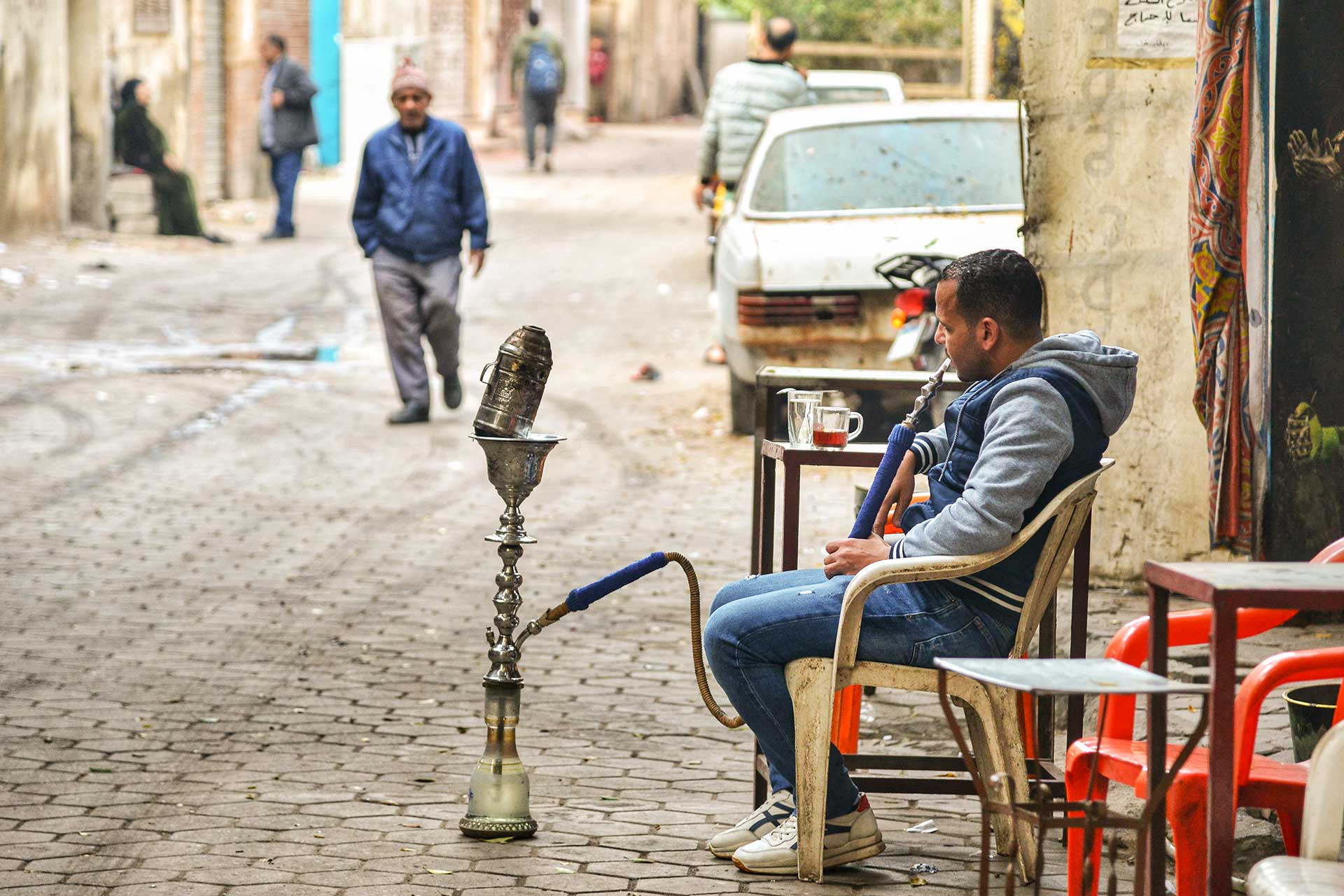
Swiss tobacco giant Philip Morris International (PMI) obtained a stake in a company that won a disputed license to make and market cigarettes in Egypt, one of the world’s most desirable tobacco markets.
The company’s full ownership details are not public, but one of PMI’s fellow shareholders is a PMI distributor.
Swiss tobacco giant Philip Morris International (PMI) gained a foothold in Egypt, one of the world’s most valuable tobacco markets, via an Egyptian company whose full ownership details are a closely-guarded secret and a licensing process that was protested by rival companies.
The Swiss firm, the largest tobacco company in the world outside China, had its eye on Egypt as long ago as the early 1980s, according to a WHO report from 2003. But efforts by private companies to dominate the north African country’s market have long been frustrated by Egypt’s Eastern Company, which until recently controlled all cigarette production there and was majority-owned by the state.
Under pressure from the International Monetary Fund to privatize state assets as a condition for receiving billions of dollars in bailouts, Egypt has loosened its hold on the tobacco industry, allowing private investors to make inroads.
That led in 2021 to Egypt’s Industrial Development Authority inviting private tobacco firms to bid for a license to manufacture cigarettes. In April 2022 it awarded the tender to United Tobacco Company. Media reports at the time described United Tobacco as a PMI “subsidiary,” but the Swiss firm’s stake was only confirmed in a U.S. Securities and Exchange Commission filing in mid-2023.
PMI owns shares in United Tobacco alongside the well-connected Emirati businessman Abdullah Al Hussaini, who has been a cigarette distributor for PMI for decades, and Eastern Company, which acquired 24 percent of United Tobacco when the license was awarded.

Eastern Tobacco Company headquarter in Giza, Egypt.
Together, PMI, Eastern and a U.K. company part-owned by Al Hussaini control around 62 percent of United Tobacco, but who owns the rest of the company is a mystery. Ibrahim Imbabi, head of the tobacco division for Egypt’s Federation of Industries, which is linked to the Ministry of Industry, told OCCRP’s media partner The Examination the ownership details are a “governmental issue and [are] classified.”
OCCRP and The Examination’s joint investigation has now assembled the most detailed picture yet of how the United Tobacco deal came together.
The tender that led to the license awarded to United Tobacco was disputed by all of the major international tobacco firms whose products are sold in Egypt – except PMI.
The terms of the tender stipulated that the winner must produce 15 billion cigarettes per year, but only PMI sold that number of cigarettes annually in Egypt. That would mean that should another company win the license, it would have to produce a rival’s product in order to reach the 15 billion quota.
Representatives of British American Tobacco, Japan Tobacco and Imperial Group protested in joint letters to Egyptian Prime Minister Mostafa Madbouly. The terms were adjusted, reducing the quota to 1 billion cigarettes, but the firms still refused to participate, complaining to Madbouly that issuing only one license would lead to “market distortion” and “new forms of monopoly.” PMI was the only one of the four major tobacco players in Egypt that did not sign the letter protesting the licensing process, and United Tobacco was the only bidder in the final round.
PMI did not answer specific questions sent by reporters. Al Hussaini did not respond to multiple requests for comment. A spokesperson for Eastern Company did not respond to questions.
“Sister Companies”
The details of PMI’s and Al Hussaini’s stakes in United Tobacco come from the Swiss firm’s June 2023 filing to the SEC, which stated that PMI acquired a 25 percent economic interest in United Tobacco via a Dubai-based company called Egypt Investments Holding.
Like PMI, Al Hussaini holds his economic interest in United Tobacco via Egypt Investments, in which he is a part-owner via a London-registered company called Trans-Emirates Trading & Investment U.K. Limited. He co-owns the U.K. company with the former foreign minister of the United Arab Emirates, Rashed Al Nuaimi, who did not respond to requests for comment sent to his lawyer.
PMI’s filing to the SEC states that Egypt Investments owns a total 38 percent of United Tobacco. Aside from Egypt Investments and Eastern Company, it is unclear who holds the rest of the shares.
Shana Marshall, the associate director of the Institute for Middle East Studies at George Washington University, told The Examination that a lack of disclosure over company ownership in Egypt could indicate the involvement of companies owned by Egypt’s military, which is a sensitive issue domestically.
According to the Carnegie Middle East Center, a think tank based in Beirut, the military owns dozens of companies in Egypt in industries including cement, gold prospecting, and zoo management, and its economic role has dramatically expanded in the decade since President Abdel Fattah El-Sisi took power in a military-backed coup.
The military sometimes retains minority stakes in industries that are strategic politically or economically, but also “as a special concession that business owners must make in order to operate in Egypt,” said Marshall, who noted that she does not have any specific knowledge about whether the military is involved with United Tobacco. PMI, Al Hussaini, and a spokesperson for Eastern Company did not respond to specific questions about the identity of the other United Tobacco shareholders.
Egypt took another step towards privatizing the tobacco sector in September last year when it sold some of its shares in Eastern Company to a newly-formed UAE-based company called Global Investments Holding — also part-owned by Al Hussaini.
As a result, Global Investments became Eastern Company’s biggest single shareholder, owning 30 percent of the firm. That meant that Al Hussaini now had stakes in the only two companies in Egypt with rights to manufacture cigarettes: Eastern Company and United Tobacco. Imbabi, the head of the tobacco division for Egypt’s Federation of Industries, described Global Investments and United Tobacco as “sister companies.”
This is likely to be an enviable position for Al Hussaini, since tobacco is a booming business in Egypt. In 2021, excise taxes on tobacco were the biggest contributor to Egypt’s budget, surpassing the Suez Canal and providing $4.67 billion in tax to a state beset by inflation and mounting economic woes.
With 114 billion cigarettes sold in 2022, it remains one of the few countries where demand for tobacco is expected to rise, making it a hugely desirable market.

“You have … an addictive product in a country of 110 million, [so] people can imagine how insanely profitable this can be,” Osama Diab, an Egyptian development economist at Belgium’s KU Leuven, told OCCRP’s partner The Examination. “There’s almost zero risk.”
Smuggling Allegations
PMI has been dogged by accusations that it has acted in complicity with cigarette smugglers to move its products into global markets. Along with three other major tobacco companies, it was sued by the EU in the early 2000s for its behavior and agreed in 2004 to pay a $1.25 billion fine and take measures to better control its supply chain. (PMI strenuously denies the EU claims.)
Most recently, in a 2020 U.S. court complaint, a PMI distributor in the region alleged that the Swiss firm had instructed him to smuggle PMI products into Libya and other countries under embargo by the U.S.
The distributor, Raoul Setrouk, imported the company’s cigarettes into the central African nation of Chad. He claimed in his lawsuit — which was dismissed due to a jurisdictional issue — that PMI had asked him to create a paper trail showing the cigarettes were sold to a company called Rashideen, which provided him with invoices and other documents to validate the fake sales.
While the UAE does not make company ownership details public, OCCRP found a network of companies called Rashideen and extensive evidence that Al Hussaini is likely the principal figure behind it.
Setrouk provided reporters with invoices to support the claims he made in his lawsuit, which showed his company importing into Chad PMI products from Transafrica Trading Limited, a company that was part of the Rashideen group, according to Setrouk and an internal PMI memo. Neither Al Hussaini nor Rashideen was named as a defendant in the suit.
In 2020 PMI told French media that Setrouk’s New York complaint was based on “unfounded allegations” and denied any involvement in smuggling, adding that the aim of the complaint was “to seek to discredit PMI” so that Setrouk could win an undeserved pay out from the firm.
Old PMI records, released in 1998 after a series of landmark U.S. lawsuits against the world’s four largest tobacco companies over the health consequences of smoking, show Al Hussaini began distributing Philip Morris International’s cigarettes in Iran in 1991, just as the Islamic Republic began normalizing trade relations with the U.S. In 1995, after President Bill Clinton imposed new sanctions on Iran, Al Hussaini and a Swiss-based executive for the tobacco giant exchanged letters discussing how to navigate the new restrictions.
Reporters contacted Al Hussaini and Rashideen group for comment many times both directly and via the group’s senior leadership, and received no response.
Philip Morris declined to respond to emailed questions from OCCRP and The Examination about the smuggling allegations and questions over the ownership of United Tobacco, but said “this does not constitute an acknowledgement that any of the allegations you raised are either correct or incorrect.”
In a previous letter to OCCRP, Philip Morris said it seeks “to deter illicit tobacco flows” by investing in “supply chain controls” and “due diligence of customers and suppliers,” among other measures. The company has said it supports a WHO initiative to combat tobacco smuggling.